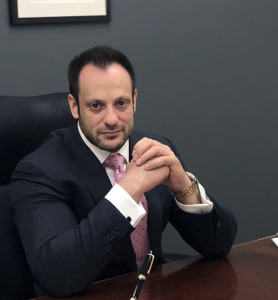
Being charged with child endangerment is a parent's nightmare. It can also cause severe damage to your reputation and finances. All these from a mistake?
An experienced criminal defense attorney can help you minimize the damage. You have much at stake, and a law firm will tirelessly protect your rights and get your child endangerment charges dropped. Read on to find out how to settle your child endangerment charge in this blog.

In California, child endangerment crime is the willful exposure of a child under 18 to unjustified pain, suffering, or danger under Penal Code 273a(a) PC. In other words, even if the child never experiences physical hurt, endangerment occurs when an unreasonable risk of harm befalls the child.
Examples of actions that could result in child endangerment charges include:
Some states punish "child endangerment" as a form of "child abuse," while others treat it as a distinct crime. However, it shouldn't be confused with California's Child Abuse Law, Penal Code 273d.
If you get convicted of a felony count of child endangerment under CPC 273a(a), you may face the following penalties:
However, if you find yourself convicted of a misdemeanor count, you may face the following child endangerment penalties:
Section 273a(a) is a "wobbler" offense. It is because you can get convicted of a misdemeanor or felony, depending on the facts of your case.
As previously noted, a felony conviction can result in six (6) years in state jail or a $10,000 fine.
A misdemeanor conviction can result in up to one (1) year in county jail or a $1,000 fine.
Child Endangerment is also criminal under California's "Three Strikes" Law.
If you have three "strikes" on your record, you will be sentenced to at least 25 years in state prison.
The situation can be stressful if you find yourself charged with child endangerment. The legal process is long and somewhat complicated, so it's essential to learn as much as possible about your rights and the probable outcome of your case. There are several things that you should do to make sure that you get the best possible result in your case.

If you're facing a child endangerment charge, you must contact an experienced criminal defense attorney as soon as possible. The penalties and consequences for child endangerment can be severe, and a child endangerment conviction can have a lasting impact on your life. But when you work with the right lawyer, you have the best chance of resolving your case through dismissal or acquittal.
Your law firm will fight hard to help reduce or eliminate your child endangerment charge penalty and ensure that you do not have to live in fear of losing your freedom or livelihood due to a false or malicious charge.
Gather as much evidence as possible about the situation. Your evidence may include witness statements, photos, videos, email records, or anything else that could prove your innocence or help your case. If you have a smartphone, document any evidence immediately so it doesn't get lost or deleted.

Even if you're guilty, it's crucial that you know your rights and plan your defense because even if you are found guilty, there are ways to minimize the damage to your reputation and prospects. Child endangerment charges can be complicated, so it's best to work with a firm that has experience with such cases.
If you get charged with child endangerment (or any other criminal charge), it is essential to have a trial preparation conducted by a renowned trial lawyer. The best lawyers will be able to help you figure out your options, how strong or weak the case against you is, and whether or not you should take a plea deal or go to trial.

The best way to fight the charge is to prove that you didn't do anything to endanger your child and that it's not likely you would have done anything to endanger your child. A great defense attorney will ensure that the prosecution has enough evidence to prove its case beyond a reasonable doubt, which can be challenging. Here are some of the more common defenses for child endangerment:
Many child endangerment accusations result from contentious custody disputes. A child could fabricate a claim out of anger or under pressure from their ex-spouse, ex-partner, or in-laws. These people can also make false accusations to get revenge or win custody of the child. Additionally, mandated reporters like doctors, teachers, or social workers may conclude without fully understanding the situation.
Your lawyer will fight this defense if you have been unfairly charged.
Your lawyer may argue that you did not commit the act on purpose. For example, suppose your babysitter leaves your child in the care of an abusive individual without your consent. In that case, you are not guilty of violating child endangerment laws because you did not willfully place the baby in a dangerous situation.
Parents are generally free to discipline their children any way they see fit as long as it's fair and doesn't result in physical harm. However, many child endangerment cases center on the issue of how a parent corrects a child (for example, by spanking or threatening to spank).
A parent or someone acting in loco parentis (such as a teacher) may occasionally invoke the defense of "parental privilege" to reasonably support their right to discipline a child in their care. However, the parental privilege could not apply if a child suffers great bodily harm due to punishment rather than simple bruises.
In addition to the child endangerment statute in California Penal Code 273a, here are a few other related laws related to child endangerment:
The offense of child neglect is defined under Penal Code 270 PC as a parent's willful and unlawful failure to give their child basic needs, including clothing, food, shelter, and medical care. Typically, this crime is a misdemeanor, which carries a maximum jail sentence of one year.
Examples of many forms of neglect:
While Penal Code 273a prohibits endangering minors under 18, Penal Code 273ab prohibits threatening younger children.
PC 273ab declares the following acts against children under 8 years old to be crimes in California:
PC 273ab also defines paralysis as "a substantial or full loss of motor function caused by injury to the neurological system or a muscle mechanism."
Although parents are allowed to use physical force to discipline their children, using excessive force is illegal. Inflicting physical punishment on a child (also known as child abuse) is a felony under California Penal Code Section 273d.
A prosecutor must be able to establish the following criteria to prove that the defendant committed child abuse:

You can save time. A legal problem can make you lose everything, so you must talk to our child endangerment lawyer today.
Hurwitz Law Group provides help for multiple types of criminal defense cases. Our law firm is prepared and ready for any situation that comes your way, and we know how to win them. Reach out to our child endangerment lawyer today by using our contact form or calling (323) 747-1121.
Search
Categories